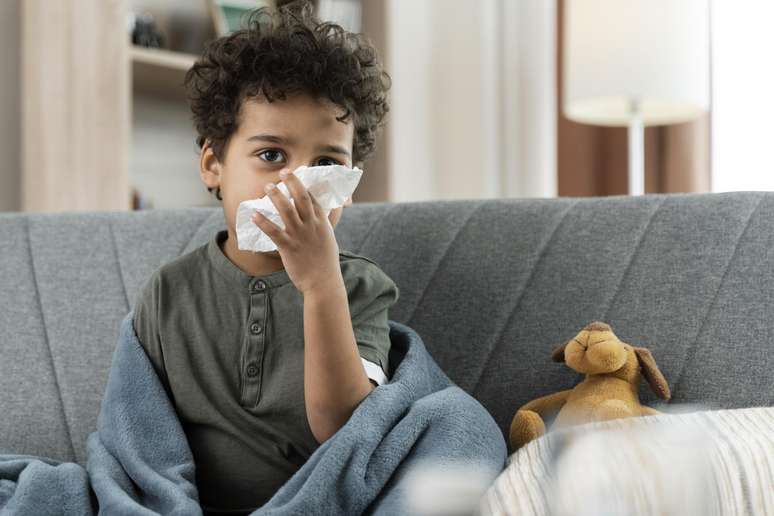Declining vaccination rates in recent years are contributing to the resurgence of the disease; SUS only vaccinates children and pregnant women
The main risk factors for whooping cough are directly related to lack of vaccination. It is a transmissible respiratory infection caused by bacteria (Bordetella Pertussis), with the main characteristic of causing attacks of dry cough.
The Coordination of Health Surveillance (Covisa) of the city of São Paulo has launched an alert to public and private health services about the increase in cases of whooping cough in the city. This year, between January and June, 105 cases of the disease have already been confirmed in the capital Sao Paulo. Among the confirmed cases there is a greater concentration in the age group between 10 and 19 years, which corresponds to 73 cases.
Transmission of whooping cough occurs mainly through direct contact between the patient and an unvaccinated person through droplets eliminated by coughing, sneezing or even talking. According to the Ministry of Health, in some cases, transmission can occur through objects recently contaminated with secretions of sick people, but this is rare.
Who should receive a booster vaccine?
The Brazilian Society of Immunizations (SBIm) recommends vaccinating even children who have already had whooping cough, since the protection acquired from the infection is not permanent.
The Unified Health System (SUS) offers vaccines for children up to 6 years, 11 months and 29 days and also a specific dose for pregnant women starting from the 20th week of each pregnancy and for healthcare workers working in maternity wards and in neonatal inpatient units, serving newborns and children under one year of age.
The Ministry of Health underlines that immunity is not permanent, after 5-10 years, on average, from the last dose of vaccine, protection may be poor or non-existent. However, the vaccine for adults is not available in the National Immunization Program (PNI) and it is necessary to contact a private clinic to reinforce the dose.
Symptoms
Generally, the signs and symptoms of whooping cough last six to ten weeks, but can last longer, depending on the clinical picture and situation of each case.
Symptoms can occur on three levels. At the first level, the mildest, they are similar to a cold.
- General malaise;
- Nasal discharge;
- Dry cough;
- Low fever.
These initial symptoms can last up to weeks, at which time the person is also more susceptible to transmitting the disease. In the middle stage of whooping cough, the dry cough worsens and other signs appear.
- The cough ranges from mild and dry to severe and uncontrolled;
- The cough can be so intense that it compromises breathing;
- A coughing fit can cause vomiting or extreme tiredness.

Updated vaccinations: See important immunizations against diseases
Treatment
Whooping cough is treated with antibiotics, which must be prescribed by a specialist doctor, depending on the case. It is important to contact a healthcare facility to receive diagnosis and adequate treatment as soon as the first symptoms appear. Children, when diagnosed with whooping cough, are often hospitalized, considering that the symptoms in them are more serious and can cause death.
Source: Terra
Ben Stock is a lifestyle journalist and author at Gossipify. He writes about topics such as health, wellness, travel, food and home decor. He provides practical advice and inspiration to improve well-being, keeps readers up to date with latest lifestyle news and trends, known for his engaging writing style, in-depth analysis and unique perspectives.








